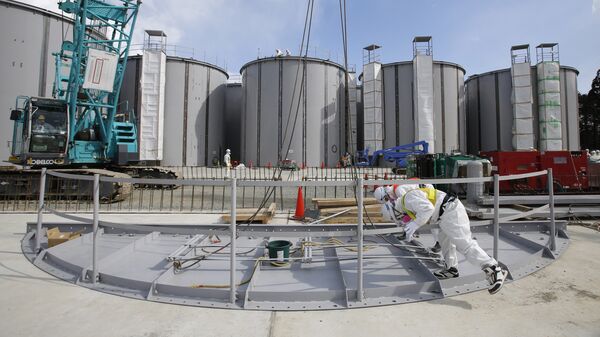The challenge here is how difficult it is to remove radioactive material from the huge quantities of water required to keep melted-down reactors at the Fukushima Dai-ichi plant chilled.
The amount of tritium in contaminated water stored at the plant is estimated at 3.4 peta becquerels. Cleansing the water of tritium is recognized as being an extremely costly process.
Citizens of Japan and the international community are alarmed by calls to simply release the tritium-laced water into the Pacific Ocean. But many scientists claim that concerns are groundless, as tritium is considered one of the least hazardous radioactive materials produced by nuclear power plants.
"Tritium is so weak in its radioactivity it won't penetrate plastic wrapping," said Shunichi Tanaka, chairman of the Nuclear Regulation Authority, adding that what would be released from Fukushima would be well below the global contamination standard.
Environmentalists doubt the optimistic prognoses, opposing any release of water containing tritium into the oceans. They warn that tritium potentially increases the risks of cancer and other illnesses, and that children are at risk as they are more susceptible to radiation-linked diseases.
"Any exposure to tritium radiation could pose some health risk. This risk increases with prolonged exposure, and health risks include increased occurrence of cancer," said Robert Daguillard, a spokesman for the US Environmental Protection Agency.
Japan's anti-nuclear activists argue that tritium must be removed from the water, even though its radiation is weaker than that of strontium or cesium.
In spite of strong opposition, releases are likely to begin later this year.



